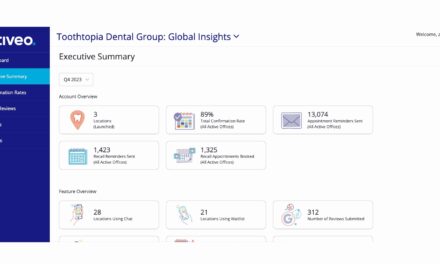
By Roger P. Levin, DDS
Of all the types of dental specialty practices, orthodontic offices see the greatest number of patients on a typical day. For this reason, it is imperative that the ortho schedule be highly efficient. Practices interested in reducing chaos and stress while increasing production should revamp their scheduling system based on the following four steps:
- Design a scheduling template. Each day should have a similar structure, reserving mornings for more demanding appointments, such as records appointments and debonds, and afternoons for checks and adjustments. Allocate time for observation patients and case presentations.
- Set the annual and daily production targets. To maximize revenue, establish aggressive production targets that will drive growth. In most cases, orthodontic practices should target a 15% annual growth rate. That total should then be divided by the number of workdays in the course of a year, resulting in a daily production target. Schedules can then be filled to reach the daily target—with actual performance tracked against that goal.
- Use 10-minute increments. Practices still using 15-minute scheduling units lose 12 to 15 days of treatment time every year. Simply shifting to 10-minute increments will recoup this lost potential. If ortho practices have not conducted procedural time studies within the past couple of years, this should be done to achieve more accurate scheduling.
- Script all scheduling interactions. Parent and patient cooperation is essential for efficient scheduling. The best way to guide them into the desired schedule openings is with scripting. Used in training to upgrade the verbal skills of front desk coordinators and other staff members, the right scripts build value for appointments and result in more patients showing up on time.
By following these four steps, any ortho practice can increase production significantly—not by working harder, but by scheduling daily activities more efficiently.
Go to www.levingroup.com/orthotc to learn about the Treatment Coordinator Online Study Club™, a free educational resource created by Levin Group to promote the professional growth of TCs and their effectiveness at influencing patients and parents to accept ortho treatment. You can connect with Levin Group on Facebook and Twitter (Levin_Group) to learn strategies and share ideas.









